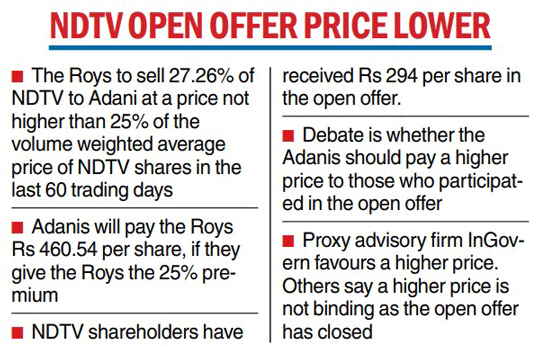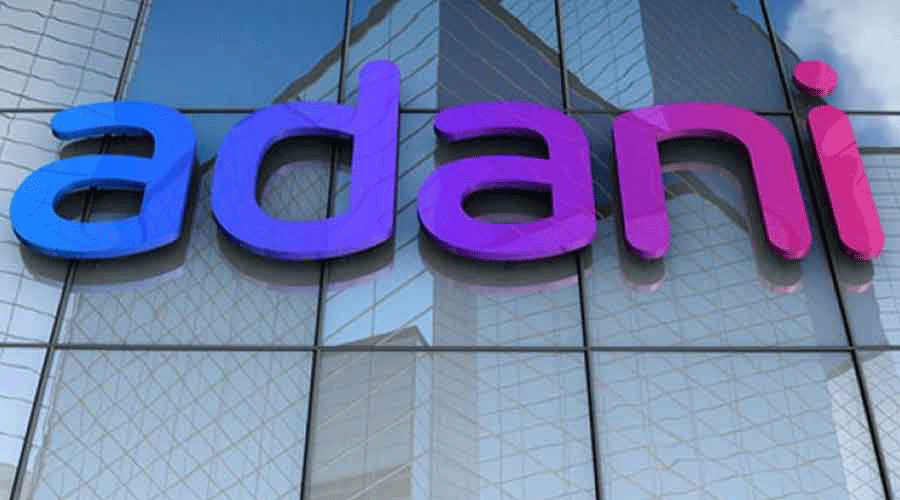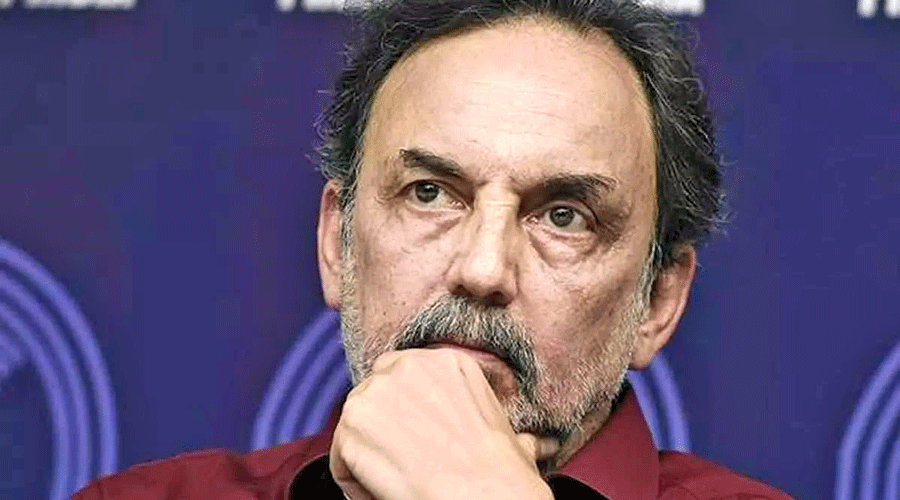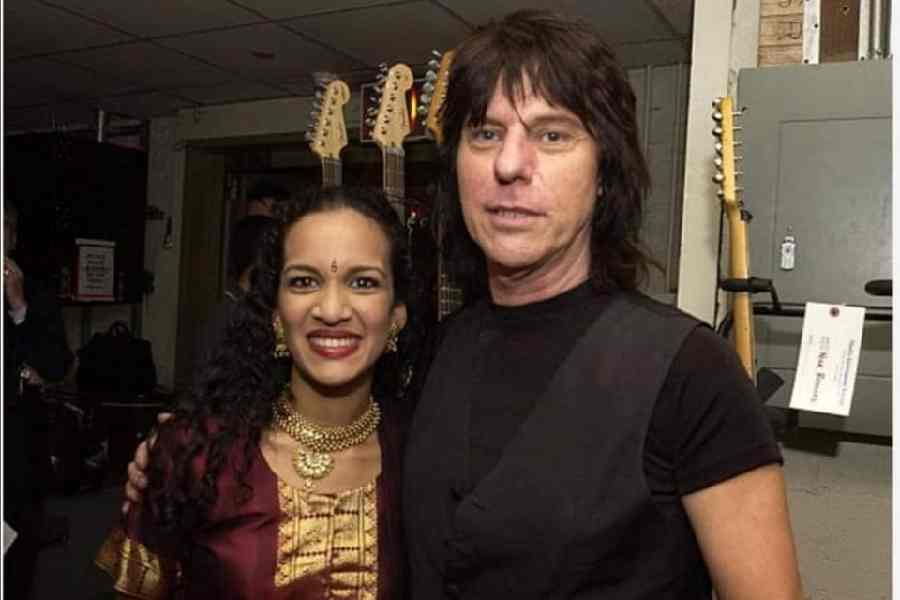The Adani group is paying a control premium to Prannoy and Radhika Roy for the bulk of their shares in New Delhi Television Ltd (NDTV) – and this could stoke some resentment among the ordinary shareholders of the company who were offered a price of just Rs 294 for their shares during the open offer that closed on December 5.
Within 18 days of the end of the open offer, the Roys struck the deal with the Adanis at a price that could be higher by as much as 56 per cent from the open offer price. The NDTV open offer ran from November 22 to December 5.
The Roys will get a maximum of 25 per cent more than the 60-day volume weighted average price of Rs 368.43 which is in line with Sebi regulations.
A 25 per cent premium to the average price works out to Rs 460.54 which means they could get a payout of almost Rs 810 crore for the 1.75 crore shares — amounting to a 27.26 per cent stake — that they have agreed to sell to RRPR Holding Private Ltd, the promoter of the news broadcaster which was acquired by the Adani group in August amid some controversy.
The actual payout to the Roys will be known later this week.
The bitterness could arise over the 25 per cent premium that the Roys have been able to negotiate for their holding — after the open offer had closed.
Section 8 of the Securities and Exchange Board of India (Substantial Acquisition of Shares and Takeovers) Regulation, 2011 – commonly known as the SAST Regulations — deals with how the open offer price should be determined.
There are three options here: it can be decided on the basis of the volume-weighted average price over 52 weeks, 26 weeks, or 60 trading days preceding the date of the public announcement.
There is more: Sub-section 7 of Section 8 of the Regulations says: “the price paid for shares of the target company shall include any price paid or agreed to be paid for the shares or voting rights in, or control over the target company, in any form whatsoever, whether stated in the agreement for acquisition of shares or in any incidental, contemporaneous or collateral agreement, whether termed as control premium or as non-compete fees or otherwise.”

Under the regulations, the minority shareholder has to be paid the same sum as the promoter get when he strikes a deal.
In the NDTV case, the timing of the two transactions – the acquisition of RRPR Holding in August and now the acquisition of the stake from the Roys – has made all the difference.
When the Adanis mounted their takeover for NDTV by acquiring RRPR Holding Pvt it was termed hostile and the Roys were mulling a legal challenge. RRPR Holding had a little over 29 per cent in NDTV – and the acquisition of the entity meant that the Adanis got indirect control of this stake. The open offer for NDTV was triggered by the RRPR acquisition.
The Roys struck their deal – separately and independently – after the open offer closed. Legally, therefore both the Adani group and the Roys are in the clear.
However, shareholders who tendered their shares in response to the open offer at a price of Rs 294 – and even those who considered the option but didn’t exercise it because it was at a discount to the ruling market price – may feel aggrieved by the 56 per cent premium that the Roys could possibly get over the open offer price. This is the result of the difference between the price of Rs 460.54 per share that the Roys could get if the deal is struck at a 25 per cent premium over the 60-day average price of Rs 368.43.
Control premium is a topic on which there are ambivalent views – and there are a number of legal cases that have erupted on the issue. One of the many legal arguments advanced in the past is that shares and controlling interest are two separate and distinct rights.
Shares provide the holder a bundle of rights. Similarly, controlling interest affords a distinct right which all shareholders do not have. Consequently, the holder of the controlling interest ought to be entitled to a higher price than the ordinary shareholder.
However, the SAST Regulation does not implicitly recognise this distinction if the promoters strike the deal before the open offer. One view is that the Adanis should pay the same price to the shareholders who tendered the shares in the open offer.
“The Adanis should pay the higher price to shareholders who tendered their shares,” Shriram Subramanian, founder & MD, InGovern Research Services, a proxy advisory firm told The Telegraph. This view is founded on the precept that all shareholders should get equitable treatment.
However, there are others who feel that since the open offer is closed, it is not binding upon the billionaire industrialist to pay a higher price to the open offer participants.
“The deal has been struck after the open offer closed. The law does not require him to pay as the open offer has closed. Nothing compels him to do it,” says Arun Kejriwal, director, KRIS, an investment advisory firm.
The weight of legal wisdom is clearly on Adani’s side. But that won’t stop minority shareholders from thinking that they have been short changed because the Roys hammered out their own post-facto agreement whose provisions are still not in the public domain – and may never be.
The fact that they hold on to a combined holding of 5 per cent stake after selling the bulk of the shares possibly means that they may have retained some rights and conditionalities which may include a put option for the sale of the residual shares at a later date – which could be struck at a much higher price.












